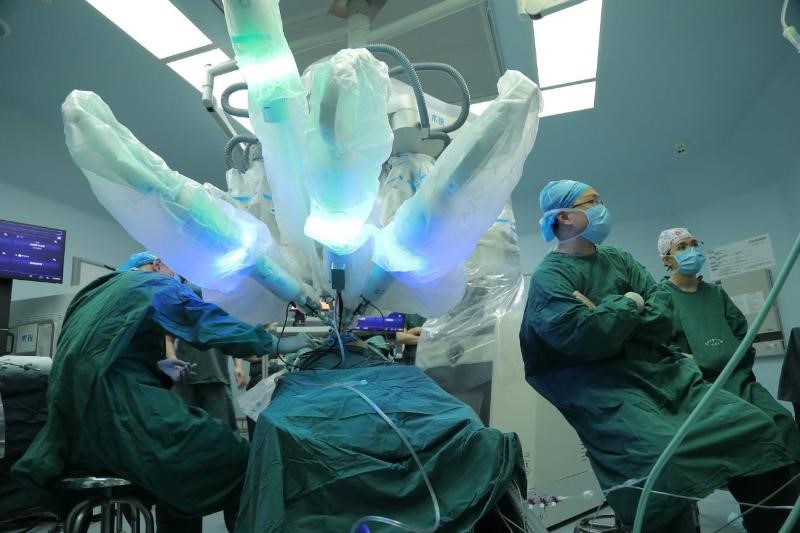
News

News

With the development in technology, keyhole surgeries have allowed surgeons to perform surgery through smaller incisions. Nevertheless, the operating difficulty of single-port keyhole surgeries is significantly higher than that of traditional multi-port keyhole surgeries. With only one skin incision, it is particularly challenging for surgeons to complete the surgery due to the lack of instrument triangulation and limited distal dexterity. Single-port keyhole surgical robots can solve this issue and overcome the limitations of manual manipulations in surgery.
Recently, the single-port keyhole surgical robot developed by a team lead by professor Kai Xu from Shanghai Jiao Tong university completed China’s first radical prostatectomy in the First Hospital of Jiaxing. It marked a breakthrough in domestic surgical robot development. Professor Xu and his team have overcome numerous difficulties and could potentially change the future of China's medical industry.
This case demonstrates that not only is the robot able to complete the surgery with only one skin incision, it is also able to complete the surgery in a shorter amount of time and leaves less damage to surrounding tissues. The patient was able to walk just one day after the surgery.
The team led by Prof. Kai Xu has carried out research on single-port keyhole surgical robots for over ten years and developed a deformable continuum surgical instrument. The surgical robot includes 68 high-precision servo motors to control the poses of the snake-like instruments and the endoscope throughout the surgery. The delay from the controller on the surgeon console to the patient-side instruments is less than 50 milliseconds and the controllers on the surgical trolley perform a closed-loop servo controlevery millisecond. This project has led to the filing of over 280 patent applications, making it an system with independent intellectual property.
Single-port keyhole surgeries are the most advanced type of minimally invasive surgery. The developed system only requires one skin incision with a diameter of 2.5 centimeters. This robot can insert a high definition 3D camera together with three highly dexterous deformable continuum surgical instruments to complete the surgery. Since the wound is small, recovery time can be shorter and such surgeries will also not leave reduced scars.
This surgery was performed by Dr. Linhui Wang, the head of the urology department at Changhai Hospital. The tumor was removed by the robot. The extracapsular resection, anatomical reconstruction, and wound closure were all completed with little blood loss, short operation time, complete lesion removal, and the surgery was a huge success overall.

Prof. Xu believes that the domestic surgical robot industry is developing rapidly and is making a positive move towards becoming a mature industry. Prof. Xu is also confident that Chinese surgical robots will continue to improve and achieve greater global competitiveness in the near future.

Shanghai Jiao Tong University
Address: 800 Dongchuan Road, Shanghai
200240